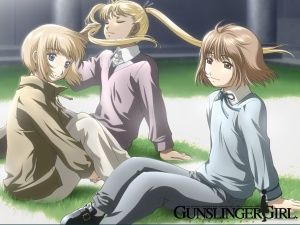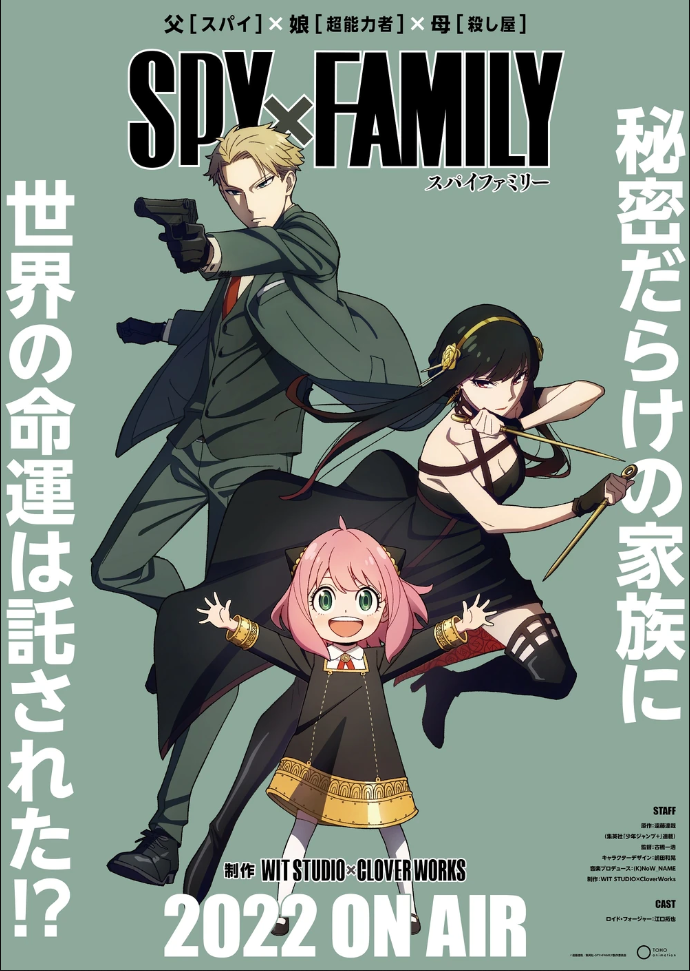The Long View: Tokugawa America
![Tokugawa Ieyasu [Public domain], via Wikimedia Commons](https://www.benespen.com/content/images/content/v1/51259dfce4b01b12552dad3e/1527216506689-EL6LJ74IG3FS0T1M5XPH/tokugawa_ieyasu2.jpg)
Tokugawa Ieyasu
[Public domain], via Wikimedia Commons
Tokugawa Japan is one of the more remarkable societies that have ever developed. It produced most of the culture that both we Americans and the Japanese find distinctive, and managed to be relatively stable and resistant to the outside world for nearly 250 years. When the outside world finally barged in, Tokugawa Japan responded more creatively than China did, although you could argue the mess Imperial Japan made in the early twentieth century mitigates this accomplishment.
Here, John Reilly asks the question: What would America look like if an isolationist policy as strict as the Bakufu's were implemented? This is the kind of fascinating thought experiment that John's fascination with alternative history made him well prepared for.
Tokugawa America
An Essay by John J. Reilly
With Thanks to Akatsukami
In this sixth year of the 21st century, one might argue that the American unipolar moment has ended, or that unipolarity has been revealed to be not at all identical with omnipotence. In either case, many Americans now feel less safe than they did ten years ago. The anxiety has many sources, all of them with an international component. There are the continuing wars in Central Asia and the Middle East, the ever more alarming terrorist threats, the relative decline of US manufacturing, the uncontrollable fluctuations in petroleum prices, the demographic transformation arising from Latin American immigration; and, an as yet insufficiently appreciated factor, the purely confessional tensions generated by the appearance of an aggressive Muslim minority in a Protestant-Christian country. For these and other reasons, there is now audible sentiment in the United States for less engagement with the wider world.
This sentiment is sometimes expressed in terms of an argument that the United States should share more of the cost of maintaining the global security and economic commons. The argument is, perhaps, incoherent. Quite aside from the fact that it assumes the existence of peer powers with an interest congruent with that of the United States in maintaining a liberal world order, the solution the argument implies would do nothing at all to shield America from the global forces that are causing the new anxiety. The opposite may be true: to wholly assimilate American interests to those of multilateral organizations in which the US does not have a preponderant voice would simply transform foreign engagement from a question of policy to one of legal obligation.
More interesting, if more radical, is the call by nationalists for far more radical disengagement. At least for purposes of this discussion, we will not consider the “civilizationist” variant, which holds that the West as a whole must fight off Islamist aggression. Though apparently of more than one mind on the subject, nationalists like Patrick Buchanan seem, on the whole, to be willing to write off the non-American portion of Western Civilization and concentrate on the defense and cultural preservation of the American homeland. In this essay will consider not so much whether such a policy would be possible or sustainable, but what it would look like if it were implemented.
As a metaphor for this project, we call the thorough-going recusant model “Tokugawa America,” after the period in Japanese history known as the Tokugawa Shogunate (1603-1868). Japan under the Tokugawa Shoguns (essentially a line of hereditary prime ministers) was perhaps the most successful and sophisticated hermit kingdom in history. It began as an attempt to re-impose order, after a long period of civil war, using an ideology of Neo-Confucian hierarchy to support a feudal four-layer caste system. At least at the beginning, the regime was anti-commercial; it famously limited foreign trade to a minimum. It also undertook to suppress Christianity as a disruptive foreign influence. Nonetheless, the Tokugawa period was by no means a dark age. The arts of the Tokugawa period, particularly in painting, achieved a level of evocative subtlety that has rarely if ever been matched. Neither was the period socially immobile. The original feudal caste system developed more market features with the passage of time, as well as a lively intellectual life. Some Japanese elites had kept abreast of events in the rest of the world. When the challenge from America and Europe came in the middle of the 19th century, Tokugawa Japan had the resilience and self-confidence to respond creatively, though the Shogunate itself was abolished early in the following era of reform.
What the American nationalists are asking for is the Tokugawa period, but with American characteristics.
Let us imagine that, after September 11, 2001, the American political system had determined to protect America by hardening the target rather than by eliminating the source of the threat. “Hardening the target” is here taken to mean, not simply making the US less vulnerable to terrorism from the Middle East, but less vulnerable to any disruption from any quarter. This invulnerability would be accomplished by changes to the United States and its immediate environment, not by attempting to modify the economic or political evolution of other parts of the world.
There would be three strategic principles:
Economic Autarky: The survival, and even the prosperity, of the United States could no longer be allowed to depend on events outside the reliable control of the American state. Tariffs would become the chief instrument of macroeconomic policy, as they were in the 19th century. Increasingly punitive imports would promote withdrawal from world commodity markets, and most especially from the world oil market. Other areas of the economy would, presumably, produce the technological innovations needed to accommodate the new price structure. In addition to the oil question, the US would no longer import manufactured goods, except perhaps for some luxury items; neither would export industries be favored. The single greatest change would be that the dollar would no longer be the chief international reserve currency, or the preferred medium of international exchange. Taxes on fund transfers would accomplish these goals. One suspects there would be a return to an international gold standard for such trade as still occurred.
Military Disentanglement: The rejection of foreign sources of essential commodities would remove the Middle East, West Africa, and Latin America as possible spheres of small wars. Large wars, or at least large wars involving the United States, would be prevented by the withdrawal of security guarantees from Europe and Japan, and indeed from everyplace east of Maritime Canada and west of Hawaii. The military could shrink to the Coast Guard, missile defense, and the Marine Corps (with the latter including its air arm).
Closed borders: Except for policed transit points, the Mexican border would be closed. Areas that could not be continuously patrolled would be mined. Businesses unable to meet their personnel needs from the domestic labor force or by automation would be expected to close. Schools, particularly graduate schools, would be in much the same situation regarding students: student visas would be rare. Travel of all kinds to the United States would be rare. Even tourists are a potential threat, both in transit and once they arrive. Government functions connected with the franchise and the administration of justice would be conducted in English.
We should note that the condition of the United States did approximate these principles during the Great Depression. The US was, almost, resource independent in those days. It actually ran a small trade surplus, though of course the absolute volume of trade was small. The US military was trying to disengage even from residual commitments in Latin America and the Philippines. President Roosevelt, during his first term, came close to turning the Army into a paper force. During the early years of the Depression, immigration actually reversed: more people left the country than entered it. Important industries were subsidized and regulated to keep them in business and to maintain employment. On the many occasions when government sought to influence prices, from the cost of wheat to the cost of airline tickets, it usually tried to raise them to prevent deflation.
Internationally, of course, the 1930s ended very badly, but that was because the US recused itself during a period of manifestly growing threats from peer states. It is not certain that the same bad result would obtain in a context in which the rest of the world were turning to rubble.
Similarly, Tokugawa America need not be a gray place of persistently high unemployment, shabby flannel clothes, and Humphrey Bogart movies. The isolation of America in the 1930s was more a matter of necessity than design, as was the disengagement of the United States from European affairs in the 19th century. The spirit and structure of a recusant regime would be quite different if the isolation were a matter of policy.
We might, for instance, consider Robert Heinlein’s novel, “If This Goes On,“ first published in 1940. During the 1930s, Heinlein thought that the United States would and should prescind as much as possible from European affairs. In most of his scenarios for the future, a second world war does occur, but the United States remains neutral. “If This Goes On---“ uses a variation on that idea: a few generations after the date of publication, Heinlein posits, the United States has dropped out of world affairs because it has become a theocracy, ruled by a line of prophets. The military is a small internal police. Life goes on pretty much as it always had (there are flying cars, but there were many flying cars in Depression era stories), except that it has become almost impossible to leave or enter the country.
Avoiding personal foreign contacts is a fundamental feature of the prophet’s system: the isolation is designed to prevent ideological contamination. This objective does not bulk large in the writings of nationalists today; neither are the nationalists, for the most part, would-be theocrats. The closest that nationalists come to an exception in this regard is the question of Islam. In some circles, every Islamic neighborhood is regarded as an incubator of fifth columnists. At the very least, Tokugawa America would have to discourage the spread of Islam, a policy that would require attention not just to immigration and nationalization policy, but also the administration of prisons. A consistent policy would also favor conversion to some form of Christianity.
A Tokugawa policy for America, however, would require some broader rationale than anti-Islamism and economic protectionism. The economic and social configuration it would seek to maintain is not natural. Markets do not stop at borders except at gunpoint. Energy will have to be continually applied to prevent the system from dissolving, something that was not true of the isolation of the 1930s. Investments will be forgone and expenditures made where they would not be in the absence of public policy. In other words, Tokugawa America will be expensive to maintain. The political system will have to be firmly committed to doing so. The recusal of the United States would have to be understood not just as a policy, but as a way of life.
In any case, Tokugawa America would need more command and redistribution features than have been fashionable since the era of deregulation began in the 1970s. It’s not just that command would have to be continually applied to keep the system in existence. The fact that the system would so obviously be picking winners and losers, particularly with regard to tariffs, that the losers would demand compensatory subsidies of various sorts. Tokugawa America would be in persistent danger of becoming a “blocked society,” in which competing claims for rents would tend to freeze the political system.
The really interesting question is whether Tokugawa America would be recognizably American. The United States has a venerable history of holy horror at the corruption of the outside world; the United States has experienced periods of “isolationism” (the 1920s was not one of them, but that’s another story); for much of its history, the United States has practiced beggar-thy-neighbor trade protectionism. What the United States has never been is defensive or culturally protectionist. In this the US has been the opposite of all the world’s hermit kingdoms, including Tokugawa Japan’s. These societies usually felt that their cultures were in some sense superior to those of the rest of the world. However, far from attempting to spread their arts or institutions to other societies, they often went to some lengths to ensure that foreigners would learn as little as possible about these treasures.
Universal liberal democracy is not the only element in American political culture, but it is one of the earliest and most persistent. Only episodically has America attempted to spread its institutions to the rest of the world as a matter of official policy. Nonetheless, the American view of the world, and indeed of itself, has always incorporated the tenet that liberal democracy would or should spread, that it would be better for everybody if the world became a society of liberal republics, as Kant had speculated. Do not be deceived by the Americans who claim to overcome American chauvinism by asserting that the whole world need not be like America. They are, perhaps, the most naive of their countrymen, since they have simply globalized American patriotism by failing to see that the world society of liberal republics does not yet exist.
Tokugawa America would no doubt retain the language of its ancestral universalism, but the meaning of the words would have shifted. For the first time, liberal democracy would just be something that Americans do, like baseball; whether or not other societies had similar institutions would no longer be relevant to the American view of historical development. For that matter the idea of historical development as progress would not fit into Tokugawa America. America’s only imperative would be its own preservation. That might make America less peculiar, but it would also make it less American.
Finally, one suspects that America in recusal might shift its emphasis from the production of popular culture to the production of a new high culture. American popular culture has always in fact been idiosyncratic, from the loner heroes in films to the advertising industry’s ideal of the female figure. Nonetheless, this culture was produced by people who unselfconsciously thought their own assumptions about beauty and virtue to be universal. The same holds true from music to food to the size of cars. Tokugawa America, in contrast, would be the kingdom of self-consciousness. These themes and motifs would be taken up like popular tunes were taken up by the great classical composers and reworked into creations of a new order. America has had self-consciously American art before, of course, but heretofore it has always been drowned out by the commercial popular arts on the one hand and the acids of the avant garde on the other. In Tokugawa America, however, there would be no subsidy for the nihilist avant garde, not in a political culture whose first duty was national preservation. As for commercial art, its market will have shrunk with the geographical sphere of American culture. Discerning patrons would determine the flow of American culture.
The model we have considered is scarcely a dystopia. Tokugawa America need not be poor, tyrannical or even ugly. There are ways in which it would be superior to the America of history. However, let no one imagine that the establishment of this society would be the preservation of the Old Republic against a globalizing world. Tokugawa America would be another country.
End
Copyright © 2006 by John J. Reilly



Comments ()